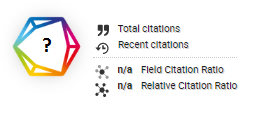PENYUSUNAN ARSITEKTUR BISNIS DAN DATA PERGURUAN TINGGI SEBAGAI SUMBER DAYA AKREDITASI MENGGUNAKAN TOGAF-ADM BERORIENTASI ARTEFAK
DOI:
https://doi.org/10.46984/sebatik.v25i2.1581Keywords:
Enterprise Architecture, TOGAF-ADM, Akreditasi, Artefak, Business Architecture, Data ArchitectureAbstract
Proses Akreditasi Perguruan Tinggi merupakan proses yang membutuhkan banyak sumber daya. Bagi perguruan tinggi dengan sumber daya terbatas, penggunaan teknologi informasi dan komunikasi menjadi salah satu solusi untuk persiapan akreditasi. Permasalahan muncul ketika stakeholder dan anggota organisasi perguruan tinggi tidak memiliki informasi tentang potensi teknologi informasi yang tersedia dan dibutuhkan. Enterprise architecture merupakan blueprint untuk memahami struktur teknologi informasi dan komunikasi di organisasi. Pemanfaatan enterprise architecture memudahkan pengelola perguruan tinggi untuk memaksimalkan dan mengembangkan teknologi informasi dan komunikasi yang dimiliki. TOGAF-ADM sebagai framework enterprise architecture menawarkan fleksibilitas dan sifat generik penggunaan artefak enterprise architecture. Sifat fleksibel dan generik ini menjadi masalah dikarenakan cakupannya yang sangat luas menyebabkan banyaknya opsi artefak yang disediakan. Penelitian-penelitian yang disebutkan sebelumnya, belum mencantumkan alasan pemilihan artefak yang digunakan.. Penelitian ini bertujuan untuk menyusun arsitektur bisnis dan data dengan framework TOGAF-ADM berorientasi artefak. Penelitian dilakukan dalam 4 tahap. Tahap pertama, implementasi preliminary phase, diikuti tahap kedua fase architecture vision. Tahap ketiga fase Business Architecture dan tahap keempat fase information system architecture. Hasil yang diperoleh tersusun 8 artefak. Artefak katalog prinsip tersusun dari 2 prinsip bisnis, 1 prinsip data, 2 prinsip aplikasi dan 1 prinsip teknologi. Artefak functional decomposition diagram baseline dan target menunjukkan diperlukannya empat proses bisnis tambahan meliputi manajemen data tracer study, evaluasi penelitian dosen, evaluasi pengabdian dosen, monitoring penelitian dosen, monitoring pengabdian dosen dan manajemen data dosen dan mahasiswa. Pada artefak organizational decomposition diagram dan role catalogue terdapat tugas dan peran setiap stakeholder terkait proses akreditasi. Artefak data entity/business function matrix dan data to role access matrix berisikan entitas data yang digunakan dalam proses akreditasi serta tugas dari setiap stakeholder terkait dengan pengelolaan data.
References
Arif Abdul Hakim, M., Nofita Saputri, D., & Rizanah Warang, R. (2019). Information Technology Architecture Design to Automate Enterprise Business Process Using TOGAF ADM. International Journal of Mechanical Engineering and Technology (IJMET), 10(03), 1525–1234.
Desfray, P., & Raymond, G. (2014). Modeling Enterprise Architecture with TOGAF: A Practical Guide Using UML and BPMN. In Modeling Enterprise Architecture with TOGAF: A Practical Guide Using UML and BPMN. https://doi.org/10.1016/C2013-0-12657-8
Eichmann, O. C., Melzer, S., & God, R. (2019). Model-based development of a system of systems using unified architecture framework (UAF): A case study. SysCon 2019 - 13th Annual IEEE International Systems Conference, Proceedings, 1–8. https://doi.org/10.1109/SYSCON.2019.8836749
Foorthuis, R., van Steenbergen, M., Brinkkemper, S., & Bruls, W. A. G. (2016). A theory building study of enterprise architecture practices and benefits. Information Systems Frontiers, 18(3), 541–564. https://doi.org/10.1007/s10796-014-9542-1
Gefan, M. (2018). The Analysis and Evaluation of Information System and Information Technology in the Parliament of Central Maluku Regency Using TOGAF ADM Method. International Journal of Computer Science and Software Engineering (IJCSSE), 7(7), 158–170.
Harrison, R. (2010). Study Guide TOGAF 9 Certified. The Open Group.
Kurniawan, B. (2011). Enterprise architecture planning sistem informasi pada perguruan tinggi swasta dengan zachman framework. Majalah Ilmiah UNIKOM, 9(1), 21–32.
Murti, D. N., Prasetyo, Y. A., & Fajrillah, A. A. N. (2017). Perancangan Enterprise Architecture Pada Fungsi Sumber Daya Manusia (SDM) Di Universitas Telkom Menggunakan TOGAF- ADM. Jurnal Rekayasa Sistem & Industri (JRSI), 4(01), 47. https://doi.org/10.25124/jrsi.v4i01.233
Nambela, Y., Zahra, D. F., & Takwim, A. (2020). A Study Of Stakeholder Perspectives Of Enterprise Architecture Methodology (TOGAF Framework). Jurnal Riset Informatika, 2(4), 0–5.
Niemi, E., & Pekkola, S. (2020). The Benefits of Enterprise Architecture in Organizational Transformation. Business and Information Systems Engineering, 62(6), 585–597. https://doi.org/10.1007/s12599-019-00605-3
Proenca, D., & Borbinha, J. (2017). Enterprise architecture: A maturity model based on TOGAF ADM. Proceedings - 2017 IEEE 19th Conference on Business Informatics, CBI 2017, 1, 257–266. https://doi.org/10.1109/CBI.2017.38
Rouhani, B. D., Mahrin, M. N. Z. R., Nikpay, F., Ahmad, R. B., & Nikfard, P. (2015). A systematic literature review on Enterprise Architecture Implementation Methodologies. Information and Software Technology, 62(1), 1–20. https://doi.org/10.1016/j.infsof.2015.01.012
Saleem, F., & Fakieh, B. (2020). Enterprise architecture and organizational benefits: A Case Study. Sustainability, 12(19), 23. https://doi.org/10.3390/su12198237
Setiawan, R. (2015). Perancangan Arsitektur Enterprise Untuk Perguruan Tinggi Swasta Menggunakan TOGAF ADM. Jurnal Algoritma, 12(1).
Soraya, V., & Sari, W. S. (2019). Perancangan Enterprise Architecture Sistem Informasi dengan Menggunakan Framework TOGAF ADM pada CV. Garam Cemerlang. JOINS (Journal of Information System), 4(2), 148–156. https://doi.org/10.33633/joins.v4i2.3054
Suryana, T. (2017). Perancangan Arsitektur Teknologi Informasi Dengan Pendekatan Enterprise Architecture Planning. Jurnal Ilmiah Unikom, 10(2), 223–236.
Tao, Z. G., Luo, Y. F., Chen, C. X., Wang, M. Z., & Ni, F. (2017). Enterprise application architecture development based on DoDAF and TOGAF. Enterprise Information Systems, 11(5), 627–651. https://doi.org/10.1080/17517575.2015.1068374
Thea Nisaa’Andi, S., Asti Amalia, N. F., & Lubis, M. (2019). IT Roadmap to Improve Business Strategy using TOGAF ADM: A Case Study of Government-Owned Electricity Company. Journal of Physics: Conference Series, 1361(1). https://doi.org/10.1088/1742-6596/1361/1/012017
Undang-Undang No.12 Tahun 2012 Tentang Pendidikan Tinggi. (2012).
Wijaya, catur wahyu. (2017). Perancangan Enterprise Architecture Pada PT. Xyz Dengan Menggunakan Metode Togaf Adm. Institut Teknologi Sepuluh Nopember Surabaya.
Yudatama, U., Nazief, B. A. A., & Hidayanto, A. N. (2018). Benefits and barriers as a critical success factor in the implementation of IT governance: Literature review. 2017 International Conference on ICT for Smart Society, ICISS 2017, 2018-Janua, 1–6. https://doi.org/10.1109/ICTSS.2017.8288869
Downloads
Published
How to Cite
Issue
Section
License
Authors retain all their rights to the published works, such as (but not limited to) the following rights; Copyright and other proprietary rights relating to the article, such as patent rights, The right to use the substance of the article in own future works, including lectures and books, The right to reproduce the article for own purposes, The right to self-archive the article








